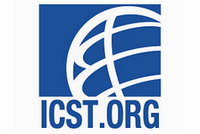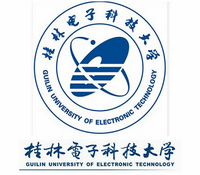
Keynote Speaker
Prof. A. J. Han Vinck, University of Duisburg-Essen, Germany
Title
Noise Models and Noise Mitigation.
Abstract
We first discuss noise models for narrow-band and broad-band noise. We develop coding - and signal processing methods to mitigate the noise effects. Error correcting codes with special code structures can be used in such a way that the code words are robust against permanent disturbances. Clipping and nulling are popular signal processing techniques to reduce the influence of impulse - or narrow-band noise for OFDM modulation.
Short Biography
A. J. Han Vinck is a full professor in Digital Communications at the University of Duisburg-Essen, Essen, Germany, since 1990. His interest is in Information and Communication theory, Coding and Network aspects in digital communications. In 2003 he was elected president of the IEEE Information Theory Society. IEEE elected him in 2006 as a fellow for his “Contributions to Coding Techniques”. In 2006 he received the IEEE ISPLC2006 Achievement award for his contributions to Power Line Communications. Professor Vinck is consultant professor at Harbin Institute of Technology.

Keynote Speaker
Prof. Michael Pecht, University of Maryland, USA
Title
Using System Health Monitoring to Keep the Dream-Liner in the Clouds
Abstract
Over the past year, Boeing’s 787 Dreamliners have experienced a number of technical issues including electrical arcing in the aircraft’s main power panel and catastrophic failure of the batteries used to run the aircraft’s auxiliary power unit. These and many other in-flight failures in the 787, suggest that the traditional reliability approaches of product design, test, and risk assessment that Boeing and their suppliers implemented are flawed. Considering the severity of the failures experienced, Boeing is fortunate that serious injuries or death did not occur as a result. It remains to be seen how the failures will affect Boeing’s public image in the long run, and whether customers will be lining up for Dreamliner flights once the airplanes are cleared for flight again. One more failure could devastate Boeing and indefinitely ground the Dreamliner.
In this presentation, the use of prognostics and systems health management is discussed for battery management to forecast battery life and safety. Batteries represent complex electrochemical structures with conflicting failure mechanisms. The prognostics and systems health management approach incorporates both physics-of-failure techniques to understand the mechanisms that precede failure and data-driven concepts to provide a prognosis before the actual failure event occurs. It serves as a model for how companies should not only conduct reliability assessments and qualification, but also real-time safety and health monitoring. A case study of the Boeing battery system will be presented.
Short Biography
Prof Michael Pecht is a world renowned expert in strategic planning, design, test, IP and risk assessment of electronic products and systems. In 2011, he received the University of Maryland’s Innovation Award for his new concepts in risk management. In 2010 he received the IEEE Exceptional Technical Achievement Award for his innovations in the area of prognostics and systems health management. In 2008, he was awarded the highest reliability honor, the IEEE Reliability Society’s Lifetime Achievement Award. Prof Pecht has an MS in Electrical Engineering and an MS and PhD in Engineering Mechanics from the University of Wisconsin at Madison. He is a Professional Engineer, an IEEE Fellow, an ASME Fellow, an SAE Fellow and an IMAPS Fellow. He has previously received the European Micro and Nano-Reliability Award for outstanding contributions to reliability research, 3M Research Award for electronics packaging, and the IMAPS William D. Ashman Memorial Achievement Award for his contributions in electronics analysis. He is the editor-in-chief of IEEE Access, and served as chief editor of the IEEE Transactions on Reliability for nine years, chief editor for Microelectronics Reliability for sixteen years, an associate editor for the IEEE Transactions on Components and Packaging Technology, and on the advisory board of IEEE Spectrum. He is the founder and Director of CALCE (Center for Advanced Life Cycle Engineering) at the University of Maryland, which is funded by over 150 of the world’s leading electronics companies at more than US$6M/year. The CALCE Center received the NSF Innovation Award in 2009. He is currently a Chair Professor in Mechanical Engineering and a Professor in Applied Mathematics at the University of Maryland. He has written more than twenty books on product reliability, development, use and supply chain management and over 600 technical articles. He has also written a series of books of the electronics industry in China, Korea, Japan and India. He consults for 22 international companies.

Keynote Speaker
Prof. Vincenzo Piuri, Università degli Studi di Milano, Italy
Title
Dependability in Cloud Computing
Abstract
Recent years have seen a growing interest among users in the migration of their applications to the Cloud computing environments. However, due to high complexity, Cloud-based services often experience a large number of failures and security breaches, and consequently, impose numerous challenges on the dependability of users applications. Unfortunately, current dependability solutions focus either on the infrastructure itself or on application analysis, but fail to consider the complex inter-dependencies between system components and application tasks.
This talk will discuss a user-centric, dependability-driven framework that considers the following aspects:
Deploying and protecting users applications in the Cloud infrastructure so as to minimize their exposure to the vulnerabilities in the network. This allows users to run their applications in the Cloud in the most secure manner possible.
Offering fault tolerance as a service to the users who need to deploy their applications in the Cloud. This approach allows an application to obtain required fault tolerance properties from a third party in a transparent manner, and increase its reliability and availability.
Short Biography
Vincenzo PIURI has received his Ph.D. in computer engineering at Politecnico di Milano, Italy (1989). He has been Associate Professor at Politecnico di Milano, Italy and Visiting Professor at the University of Texas at Austin and at George Mason University, USA. He is Full Professor in computer engineering (since 2000) and has been Director of the Department of Information Technology at the Università degli Studi di Milano, Italy.
His main research interests are: fault tolerance, digital processing architectures, embedded systems, arithmetic architectures, biometrics, pattern analysis and recognition, signal and image processing, machine learning, theory and industrial applications of neural networks, intelligent measurement systems, and industrial applications. Original results have been published in more than 350 papers in international journals, proceedings of international conferences, books, and book chapters.
He is Fellow of the IEEE, Distinguished Scientist of ACM, and Senior Member of INNS. He is Editor-in-Chief of the IEEE Systems Journal (2013-15), and has been Associate Editor of the IEEE Transactions on Neural Networks and the IEEE Transactions on Instrumentation and Measurement. He is IEEE Director and IEEE Delegate for Division X, and has been President of the IEEE Computational Intelligence Society, Vice President for Publications of the IEEE Instrumentation and Measurement Society and the IEEE Systems Council, Vice President for Membership of the IEEE Computational Intelligence Society, and Vice President for Education of the IEEE Biometrics Council. He received the IEEE Instrumentation and Measurement Society Technical Award (2002) for the contributions to the advancement of theory and practice of computational intelligence in measurement systems and industrial applications, the IEEE Instrumentation and Measurement Society Distinguished Service Award (2008), and the IEEE Computational Intelligence Society Meritorious Service Award (2009).
He is candidate to IEEE Vice President for Technical Activities 2015 (VP-elect in 2014).

Keynote Speaker
Prof. Jian-Nong Cao, Hong Kong Polytechnic University, HK
Title
Application Level Design of Fault Tolerant Wireless Sensor Networks
Abstract
Wireless sensor networks (WSNs) are becoming an enabling technology for many applications such as environmental monitoring, traffic surveillance, healthcare, and building structures damage detection. However, WSNs are prone to various kinds of faults caused by communication errors, unstable network connectivity, and sensor node failures and reading errors. Fault tolerance mechanisms are needed to make the deployed network resilient, providing support for applications to continue to work in the presence of the faults. In this talk, I will first present an overview of different kinds of faults that can occur in WSNs, and then discuss how to address fault tolerance issues in designing WSNs. Same as the design of most functions in WSNs, solutions to fault tolerance is also very much specific to applications. I will use structural health monitoring as a case study and report our research on designing resilient algorithms for WSN-based Structural Health Monitoring systems.
Short Biography
Dr. Cao is currently a chair professor and head of the Department of Computing at Hong Kong Polytechnic University, Hung Hom, Hong Kong. His research interests include parallel and distributed computing, computer networks, mobile and pervasive computing, fault tolerance, and middleware. He has co-authored 3 books, co-edited 9 books, and published over 300 papers in major international journals and conference proceedings. He is a senior member of China Computer Federation, a senior member of IEEE, and a member of ACM. He is the Chair of the Technical Committee on Distributed Computing of IEEE Computer Society. Dr. Cao has served as an associate editor and a member of the editorial boards of many international journals, including IEEE Transactions on Parallel and Distributed Systems, IEEE Transactions on Computers, IEEE Networks, Pervasive and Mobile Computing Journal, Wireless Communications and Mobile Computing, Peer-to-Peer Networking and Applications, and Journal of Computer Science and Technology. He has also served as a chair and member of organizing / program committees for many international conferences, including PERCOM, INFOCOM, ICDCS, IPDPS, ICPP, RTSS, DSN, ICNP, SRDS, MASS, PRDC, ICC, GLOBECOM, and WCNC.
Dr. Cao received the BSc degree in computer science from Nanjing University, Nanjing, China, and the MSc and the Ph.D degrees in computer science from Washington State University, Pullman, WA, USA.








































